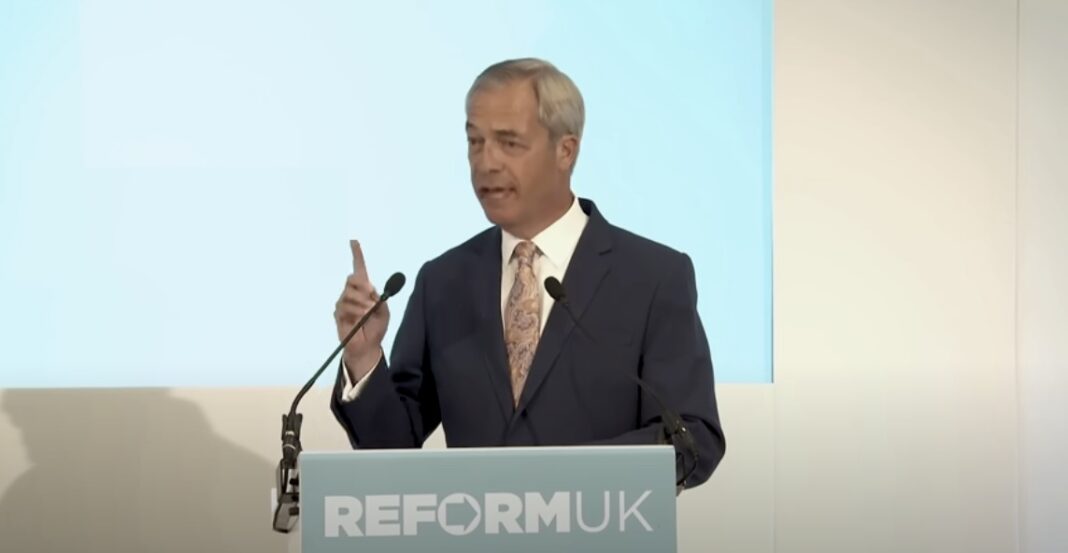23 JUNE 2025 | NEWS
At a press conference this morning, Reform UK pledged a new method for restoring the former ‘non-dom’ tax status previously enjoyed in the UK by some of the wealthiest people in the world.
It follows the abolition of this status as of April 2025 by Chancellor Rachel Reeves in her Spring Statement, when she stated: “If you make Britain your home, you should pay your tax here.”
But the Reform UK party has now put forward an alternative, stating that it would “resolve to restore the social contract between the richest and the lowest-earning working people in this country”.
However, the policy does not cater to the self-employed and freelance sole traders, targeting only those recipients who are in PAYE full-time employment. Self-employed people account for around 13% of the total UK workforce.
Drawn up by the party’s former Chairman and now head of its replica of the US Government’s ‘Department of Government Efficiency’, Zia Yusuf, the paper handed to journalists at this morning’s press conference proposes that those who wish to be voluntarily non-domiciled in the UK for tax purposes could pay a one-off fee of £250,000 – renewable at the same rate once per decade – for what it calls a ‘Britannia Card’, allowing them to retain a residence permit, a remittance-style regime on offshore income, and pay no inheritance tax in the UK.
But speaking to Wolves, Mr Yusuf said that accommodating for the self-employed would be too difficult for the HMRC to implement. Yet self-employed workers do provide their own annual tax returns, which can be audited at any time.
He added that there were some different plans in the pipeline to accommodate for the self-employed (without specifying any further), but acknowledged that the current plan does not cover them. This means that the present plan would only benefit the poorest people who are in full-time employment.
The party has already been criticised for seeking to implement left-wing ‘redistributive’ policies – referred to as a “Robin Hood tax” – which it denies, stating that the most important thing is to retain wealth within the country.
Citing recent reports of a troubling exodus of the wealthiest in society, the party claims that this policy would bring wealthy people back to the UK, if it were to gain power in a few years at the next General Election and enact it.
Its paper further states: “The Britannia Card would re-establish the UK as an attractive destination for high-net-worth individuals, entrepreneurs, and top global talent. By offering a clear, one-off tax deal, it removes the uncertainty and hostility that recent non-dom changes have created.”
But Labour slammed the policy as a “bonanza for billionaires”, with its Chair, Ellie Reeves, adding: “Not only is this a golden giveaway to the rich, but experts warn this will leave a massive black hole in the country’s finances that working people will be left to pick up the bill for.”
The policy is specifically designed to share the wealth gained from the ‘Britannia Cards’ amongst the 10% poorest people in society. The paper estimates that the issue of 6,000 cards would generate £1.5bn in annual revenue, which would equate to around £600 per year doled out as a tax-free payment to bottom-decile workers per year, around 90 days after the end of a fiscal year.
This is its lower-end estimate, assuming £1.5bn collected per year; at its higher end, with 10,000 cards issued and assuming £2.5bn collected per year, the annual benefit for the lowest-paid is estimated to amount to around £1,000.
Reform UK stressed that an initial, up-front, but manageable and predictable commitment would be highly likely to pique the interest of the world’s richest people. It also highlighted the additional contributions that wealthy people make to a society, such as paying VAT on luxury goods, stamp duty on property purchases and income tax for wealth generated in this country itself.
It further condemned the actions of successive Conservative administrations, and in particular those of the incumbent Labour Chancellor, accusing them of “driving wealth away”, and referring to “an exodus of highly economically productive people”.
Nigel Farage, as leader of the party, also emphasised that he wanted to retain Britain’s competitiveness, without driving any more wealthy people away, and that low earners would benefit directly and visibly from the presence of wealthier people in their own society.
The paper ends by stating that it “offers a political and social dividend: proof that Britannia can indeed rule again in attracting talent and wealth, while ensuring all her citizens share in the prosperity that follows”, but it makes no mention of those who work independently.
The party has been approached for comment as to its future plans for offering similar benefits to self-employed workers.
The full paper, as published today, can be read here:
Reform-UK-Britannia-Card
























